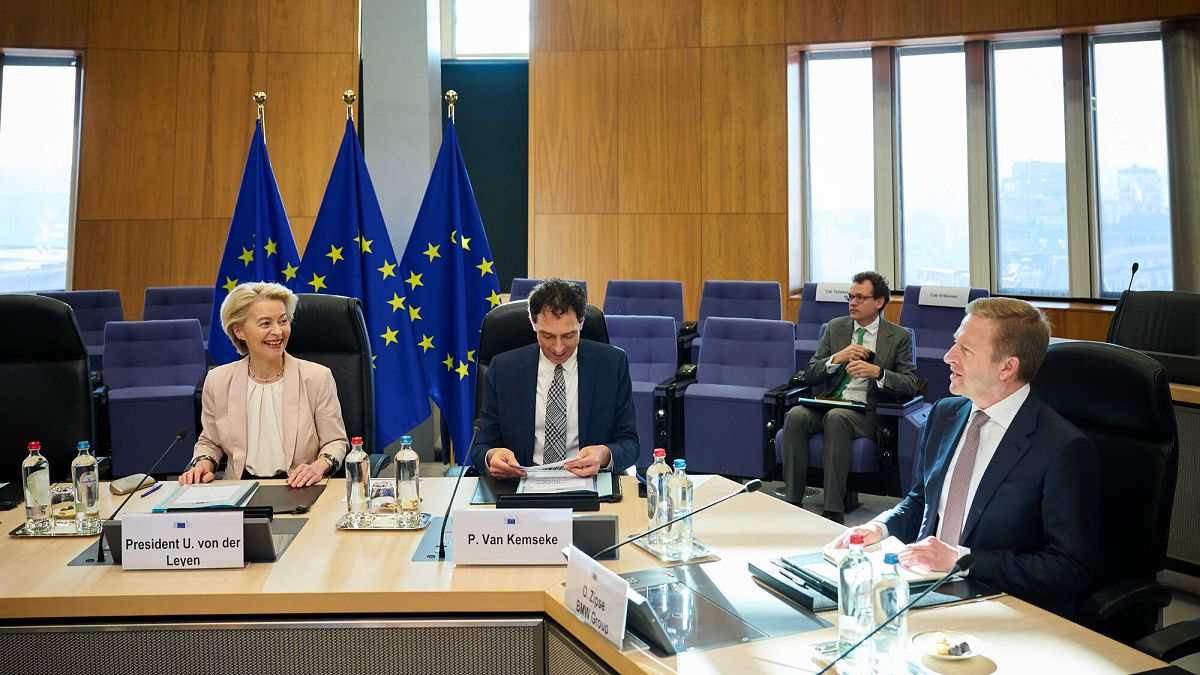Ten years after the Dieselgate scandal over cheating in exhaust emissions tests, European carmakers are in the frame again, this time for market skulduggery in the form of a clandestine agreement not to compete on grounds of environmental friendliness on the basis of their support for recycling.
The European Commission has dished out whopping fines to 15 carmakers and their main Brussels-based lobby group, on the same day that the EU executive delivered a proposal to water down CO2 emissions standards following months of alarmist campaigning by the automotive industry.
“These car manufacturers coordinated for over 15 years to avoid paying for recycling services, by agreeing to not compete with each other on advertising the extent to which their cars could be recycled, and by agreeing to remain silent on the recycled materials used in their new cars,” European Commission vice-president Teresa Ribera said.
“We will not tolerate cartels of any kind, and that includes those that suppress customer awareness and demand for more environmental-friendly products,” added the Spanish former environment minister Ribera, whose EU portfolio includes sustainability and competition policy.
The largest fine of almost €128 million went to Germany’s Volkswagen, which was at the centre of the Dieselgate scandal that broke out in 2015. Renault/Nissan came second with €81m.
Stellantis’ would have come top, but its fine was halved to €75m after the firm cooperated with the Commission in its probe. Mitsubishi (€4m) and Ford (€41m) also had their fines reduced under the same leniency procedure.
Mercedes-Benz managed to avoid altogether what would have been a €35m fine by blowing the whistle on its competitors, or “revealing the cartel” as the Commission put it.
BMW, GM, Geely, Honda, Hyundai/Kia, Jaguar, Land Rover/Tata, Mazda, Opel, Suzuki, Toyota, Volvo and Geely (not in that order) also received fines ranging between €1m and €25m.
The European Automobile Manufacturers’ Association (ACEA) was also hit with a €500,000 fine for acting as “facilitator of the cartel, having organised numerous meetings and contacts between car manufacturers involved”.
The news of the cartels comes on the same day that the Commission formally proposed easing the compliance deadline for new CO2 emissions limits that took effect this year. ACEA and its members have campaigned vigorously, arguing they faced collective fines in excess of €13bn that posed an existential threat to the European industry.
Critics said carmakers had brought the situation on themselves by gambling on rising sales of electric vehicles to bring down average emissions in portfolios skewed towards profitable SUV type vehicles.
Under the Commission’s proposal, compliance would be based on the three-year average starting in 2025, giving carmakers wriggle room to ramp production of smaller, cheaper electric vehicles.
“Our highly innovative automotive industry is decarbonising to contribute to the fight against climate change, but also to maintain its competitive edge on the world markets,” said European Commission president Ursula von der Leyen, who took personal charge of a policy dialogue to rescue the industry.
“With today’s initiative, we grant more flexibility to this key sector, and at the same time we stay the course of our climate goals,” von der Leyen said.

